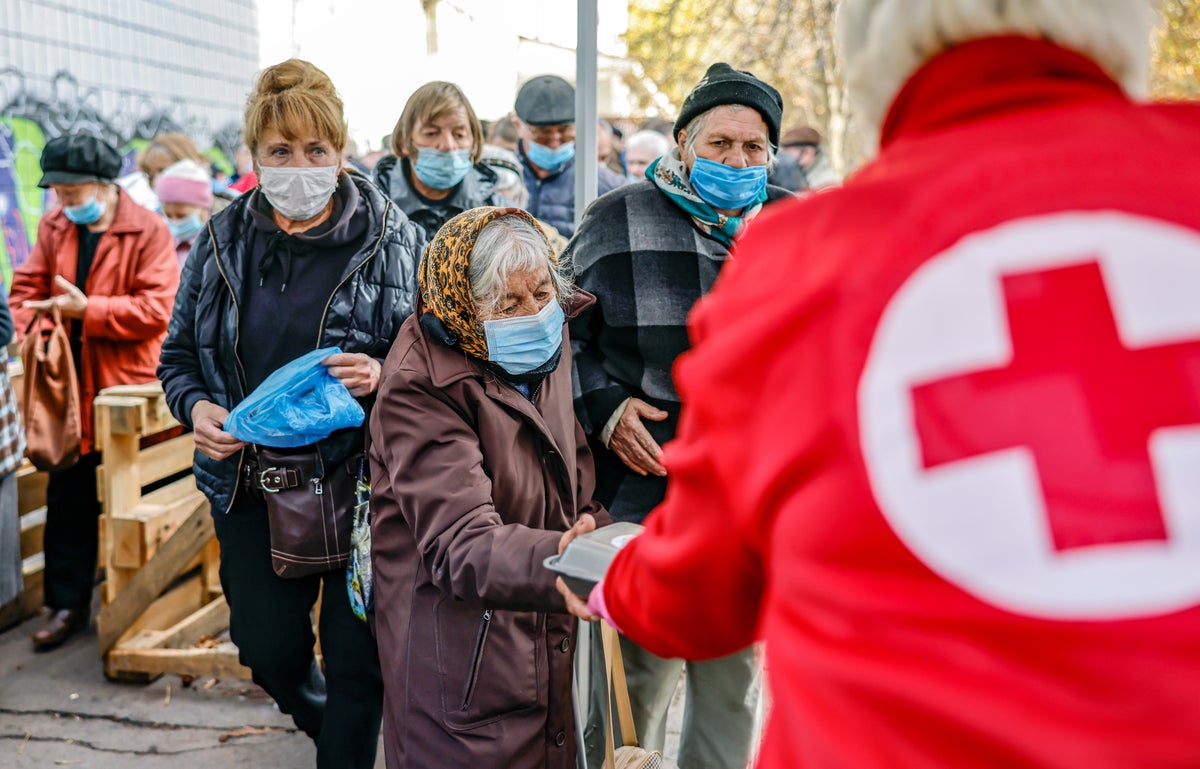
The word “permacrisis” has been appointed as Collins Dictionary’s word of the year, in order to sum up the tumultuous period people all over the world have gone through in recent times.
The word is defined as “an extended period of instability and insecurity” and is one of several terms on the 2022 list which has seen increasing usage due to ongoing crises.
The dictionary said it chose the word because it “sums up quite succinctly just how truly awful 2022 has been for so many people”.
Of the 10 words of the year on Collins’ list, six are new to the Collinsdictionary.com, including “permacrisis”. However, the term was first noted in academic contexts from the 1970s.
Another word on the list which has contributed to the feeling of “permacrisis” is “partygate”. The word refers to government ministers, including former prime minister Boris Johnson, who held social gatherings in spite of the public health restrictions imposed on the British public over lockdown periods.
“Kyiv” has also been added to the list after the city became a symbol of Ukraine’s stand against Russian aggression.
“Warm bank”, which describes a heated building such as a library or place of worship where people who are unable to afford heating in their homes may go, was also added to the list.
Other terms on the list like “quiet quitting” and “vibe shift” reflect the personal impact of ongoing crises. “Quiet quitting” refers to workers sticking exactly to their job description at work, while “vibe shift” related to “a significant change in the prevailing atmosphere or culture”.
Queen Elizabeth II’s death in September also influenced the list with the addition of the word “Carolean”, which signifies the end of the second Elizabethan era and the beginning of King Charles III’s reign.
The list does include a more fun word: “splooting”, which refers to a position animals take by stretching themselves out to cool off. The phenomenon was seen frequently during this summer’s intense heat.
Finally, the word “sportswashing” rounds off the list. The word means organisations or countries that are using sports promotion as a way to enhance their reputations or distract from controversial activities or policies.
“Sportwashing” has seen increased use in the year of the upcoming Fifa World Cup in Qatar.
Alex Beecroft, managing director of Collins Learning, said: “Language can be a mirror to what is going on in society and the wider world and this year has thrown up challenge after challenge.
“It is understandable that people may feel, after living through upheaval caused by Brexit, the pandemic, severe weather, the war in Ukraine, political instability, the energy squeeze and the cost-of-living crisis, that we are living in an ongoing state of uncertainty and worry; ‘permacrisis’ sums up quite succinctly just how truly awful 2022 has been for many people.
“Our list this year reflects the state of the world right now - not much good news, although, with the determination of the Ukrainian people reflected by the inclusion of ‘Kyiv’, and the dawn of the new ‘Carolean’ age in the UK, there are rays of hope.”
Last year, the word of the year was “NFT”, which means “non-fungible token”. The term entered the lexicon after millions were spent on the most sought-after images or videos online.
Additional reporting by PA







